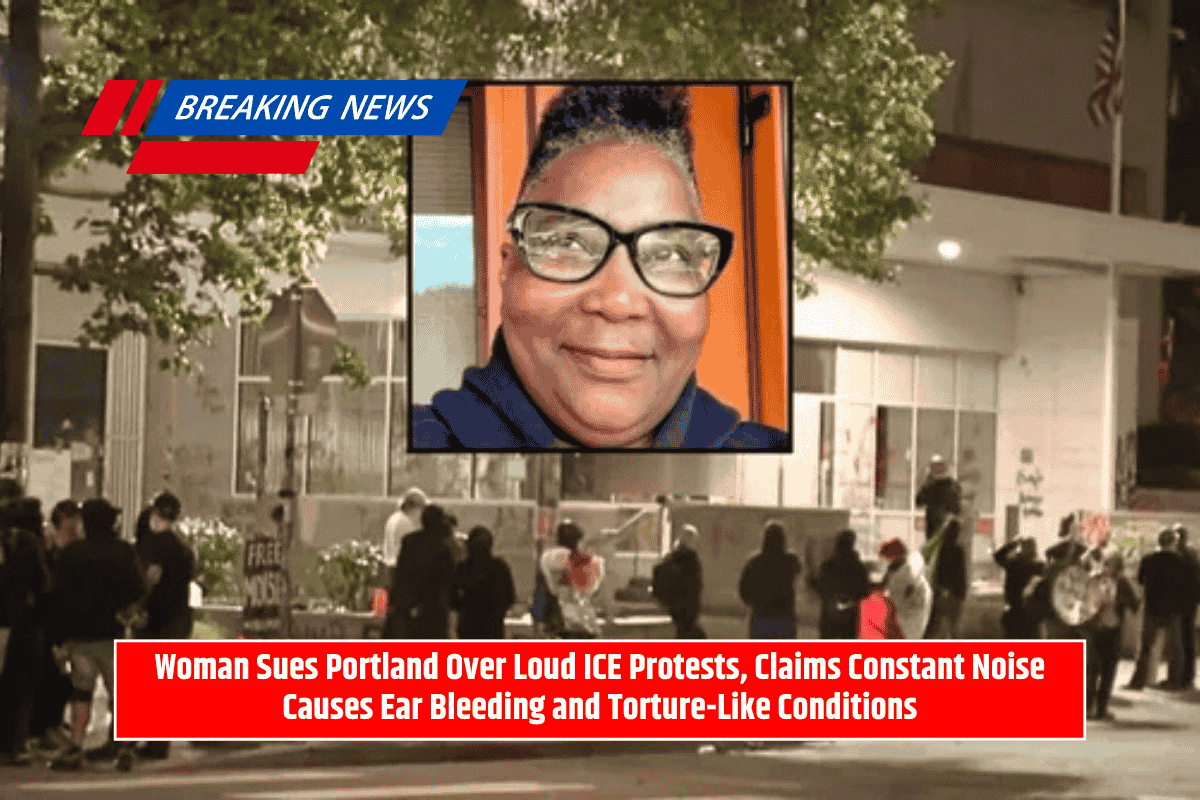An Oregon woman has filed a lawsuit against the city of Portland, claiming she is being subjected to constant, unbearable noise from protests outside a U.S. Immigration and Customs Enforcement (ICE) facility.
The protests, which have been a regular occurrence due to the government’s immigration and deportation policies, have allegedly caused the woman, Cloud Elvengrail, severe physical distress, including hearing loss and ear bleeding.
The Ongoing Disturbance
Elvengrail, who lives in an apartment near the ICE facility located at 4310 S. Macadam Ave. in Portland’s South Waterfront neighborhood, says the noise from the protests has been “constant” and “akin to a torture chamber.”
The protests, often involving loud noises such as bells, whistles, and air raid sirens, typically take place late at night, disturbing residents like Elvengrail.
Her attorney, Julie Parrish, described the sounds as “shrill” and stated that they have caused Elvengrail significant harm. Elvengrail has reported that the noise is so intense it has made her left ear bleed and has left her in constant pain with ringing ears.
The noise from the protests has disrupted her sleep and, according to her claims, affected her physical and mental health, especially given her history with PTSD.
The Protests and Noise Devices
The protests have escalated in recent months, with demonstrators allegedly using a makeshift Long Range Acoustic Device (LRAD) to amplify their noise, particularly around 1 a.m.
Elvengrail became vocal about the noise, even shouting at protesters and threatening legal action. In response, the protests reportedly increased, with louder and more aggressive tactics used to disrupt her peace.
Elvengrail has filed a lawsuit, asking the court to enforce Portland’s noise ordinances and provide relief from the disruptive sounds. The lawsuit highlights the distress caused by the noise, noting that Elvengrail cannot afford to move out of the apartment and is left with no escape from the constant turmoil.
She has argued that the building, rather than a home, has become “more akin to a torture chamber.”
Legal Claims and Health Impact
In her legal complaint, Elvengrail claims that the protest noise has not only caused hearing damage but also created a life-safety issue due to the need to open windows for ventilation.
Without air conditioning, Elvengrail is forced to choose between opening windows to cool her apartment or keeping them shut to block the noise and fumes from the protests. This difficult decision has, according to the lawsuit, contributed to health risks and significant distress.
Elvengrail’s neighbor, Tim Paulk, has also supported her claims, saying that the protests, including the use of megaphones and air horns, are intentionally disruptive and inconsiderate of the neighborhood.
Paulk described the situation as “super aggressive” and stated that attempts to speak with the protesters have only led to hostility and screaming.
Request for Immediate Action
Elvengrail’s legal team has requested an expedited hearing to address the urgent nature of the case. They argue that the ongoing noise has not only harmed Elvengrail but also created an unsafe environment for other residents and commuters in the area.
Elvengrail’s attorney, Julie Parrish, clarified that her client is not against the protests themselves but is seeking to stop the use of “weaponized noise” that has caused her significant harm.
Portland city officials have not yet responded to the lawsuit or requests for comment.
This lawsuit sheds light on the complex tension between public protest rights and the need for peace and quiet in residential areas. While Elvengrail acknowledges the right of protesters to voice their concerns, she argues that the level of noise being directed at the ICE facility has crossed a line into harassment and harm.
As the case progresses, it could set a precedent for how cities balance freedom of expression with residents’ rights to live in peace.
